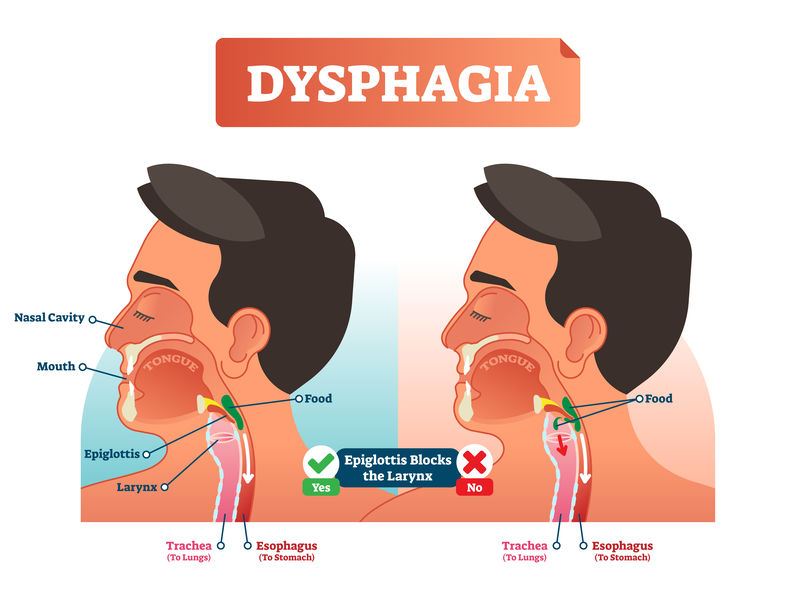Difficulty Swallowing (Dysphagia)

Pain or problems while swallowing can cause anxiety and stress and hamper your lifestyle. Medically called dysphagia, difficulty swallowing typically occurs in older patients and usually isn’t cause for grave concern. However if problems swallowing persist more than a day or two or cause acute pain it’s best to contact your doctor.
Symptoms & Causes
Difficulty swallowing can arise from problems with numerous nerves and muscles in your mouth and throat. Brain damage, nerve damage, cancer, stomach reflux and even old food can cause difficulty swallowing. Symptoms can include not being able to swallow, drooling, hoarseness, heartburn and severe coughing or gagging. Your doctor will best be able to pinpoint the underlying cause of your dysphagia and offer the best solution.
Diagnosis & Treatment
The most common evaluations your doctor may ask you to undergo after an interview and physical exam are cineradiography, upper endoscopy and manometry. Each help your doctor find out exactly what part of your mouth and throat is causing your symptoms. Treatments for difficulty swallowing are ranging. Your doctor might simply recommend a speech or swallowing therapist while more severe cases could require surgery or prescription medication.
Prevention
Preventing dysphagia is difficult because the causes are often neurological. However, to reduce the risk it’s best to eat slowly, chew food thoroughly and drink plenty of water.
